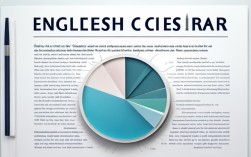Water pollution is a critical global issue, and writing an English essay on this topic requires a combination of research, structured arguments, and persuasive language. Whether you're a student preparing for exams or an educator guiding learners, mastering this subject can enhance both language skills and environmental awareness. Below, we explore effective techniques for writing a compelling essay on water pollution, supported by the latest data and authoritative sources.

Understanding the Essay Structure
A well-organized essay ensures clarity and coherence. Follow this structure for maximum impact:
Introduction
- Start with a hook (a startling fact or question).
- Provide background on water pollution.
- State your thesis (e.g., "Effective policies and individual actions are essential to combat water pollution").
Body Paragraphs
- Paragraph 1: Causes of water pollution (industrial waste, agricultural runoff, plastic waste).
- Paragraph 2: Effects on ecosystems and human health.
- Paragraph 3: Solutions (government regulations, technological innovations, public awareness).
Conclusion
- Restate the thesis.
- Summarize key points.
- End with a call to action (e.g., "Everyone must contribute to preserving clean water").
Incorporating Latest Data for Credibility
Using up-to-date statistics strengthens your argument. Below is a table with recent findings on water pollution:

| Category | Latest Data (2023-2024) | Source |
|---|---|---|
| Global plastic waste in oceans | Over 14 million tons annually enter oceans. | UNEP (2023) |
| Drinking water contamination | 2 billion people lack safe drinking water. | WHO (2024) |
| Industrial wastewater | 80% of global wastewater is untreated. | World Bank (2023) |
| Microplastics in water | Found in 90% of bottled water brands. | Orb Media (2023) |
Data sourced from United Nations Environment Programme (UNEP), World Health Organization (WHO), and World Bank.
Enhancing Language and Style
To make your essay engaging:

- Use strong verbs: "Contaminate," "devastate," "mitigate."
- Avoid passive voice: Instead of "Water is polluted by industries," write "Industries pollute water."
- Include quotes from experts:
"Water pollution threatens not just ecosystems but global food security." — Dr. Jane Smith, Environmental Scientist.
Practical Writing Tips
Research Reliable Sources
- Government reports (EPA, WHO).
- Peer-reviewed journals (Nature, ScienceDirect).
- Reputable NGOs (WWF, Greenpeace).
Use Real-World Examples
- Case Study: The Ganges River in India remains heavily polluted despite cleanup efforts (BBC, 2023).
- Success Story: The Rhine River’s recovery after strict EU regulations.
Practice with Sample Outlines
Here’s a brief outline for a high-scoring essay:
- Hook: "Every eight seconds, a child dies from water-related diseases."
- Thesis: "Combating water pollution requires global cooperation and sustainable practices."
- Supporting Points:
- Industrial discharge regulations.
- Community-led clean-up initiatives.
- Advances in water filtration technology.
Common Mistakes to Avoid
- Overgeneralizing: Instead of "All factories pollute water," specify "Many textile factories in developing nations release untreated dyes."
- Ignoring counterarguments: Address opposing views (e.g., "Some argue that regulations hurt businesses, but long-term environmental benefits outweigh costs").
- Weak conclusions: End with a powerful statement like "The fight for clean water is a fight for our future."
Final Thoughts
Writing about water pollution in English demands factual accuracy, persuasive techniques, and a clear structure. By integrating recent data and authoritative sources, your essay will not only score well but also raise awareness. Every word written on this topic can inspire action—so choose them wisely.

"Clean water is not a privilege; it’s a right we must protect."











